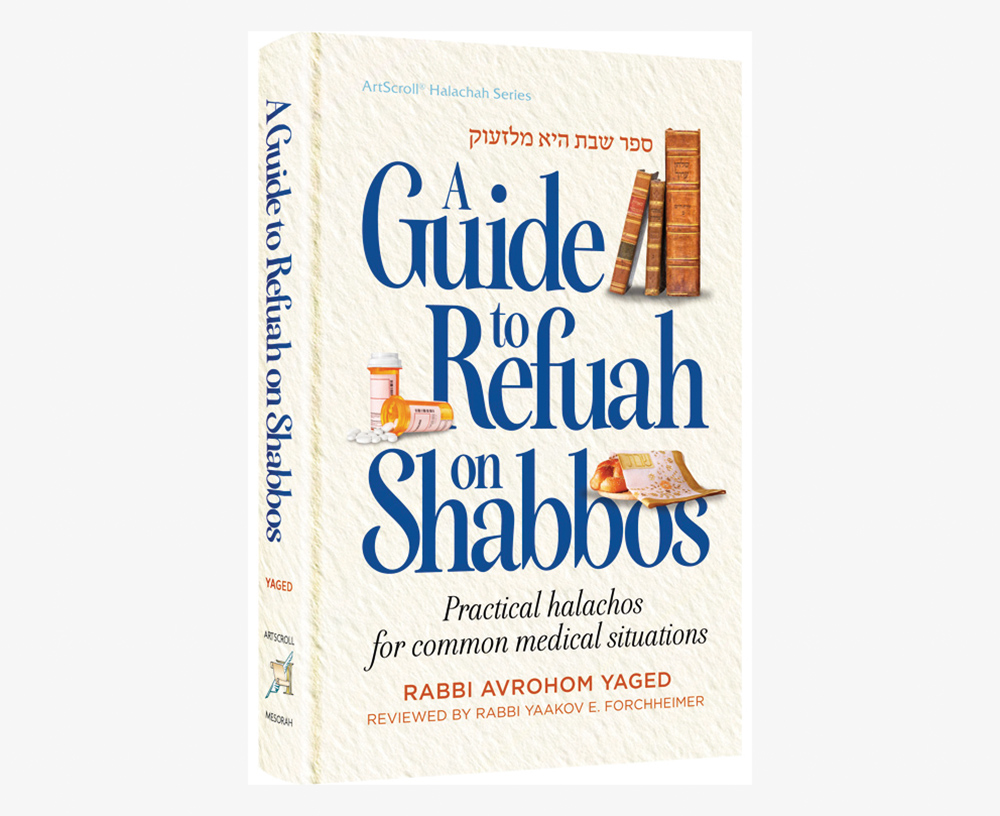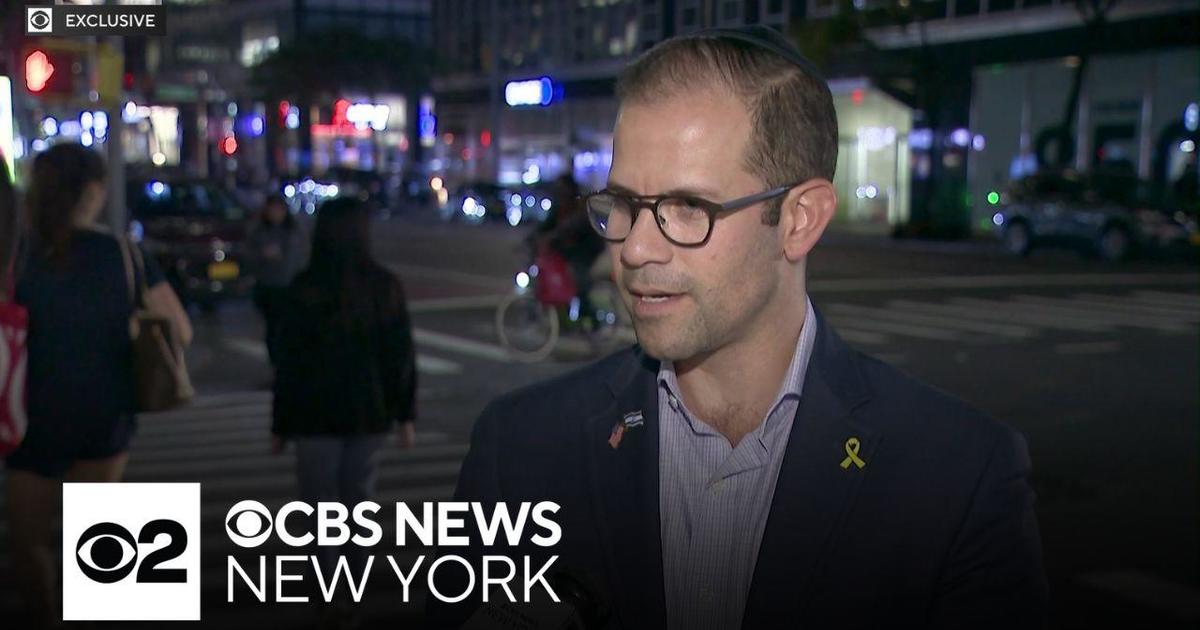Highlighting: “A Guide To Refuah on Shabbos” by Rabbi Avrohom Yaged. ArtScroll/Mesorah Publications. 2023. Hardcover. 200 pages. ISBN-13: 978-1422638224.

(Courtesy of Artscroll) From minor ailments to major medical crises: Dealing with unexpected health situations on Shabbos can be challenging.
Through his Hebrew-language halacha sefarim, Rabbi Avrohom Yaged has earned a stellar reputation for clarifying complex halacha topics in an easy and understandable way. Rabbi Yaged is a dynamic rav who has become the address for many modern-day questions.
Now, for the English-speaking public, Rabbi Yaged brings the public “A Guide to Refuah on Shabbos,” which includes both the general principles of healing on Shabbat and the halachos of how to deal with specific medical situations.
In writing the sefer, Rabbi Yaged worked closely with Harav Yaakov E. Forchheimer, the senior halachic authority of Beis Medrash Govoha, who reviewed all the halachos, and whose piskei halacha appear throughout the sefer.
What is considered a life-threatening situation? How high does fever have to be to pose a danger to life? What if a child needs stitches? What about painkillers or medicines? May an allergic person carry an EpiPen? What are the halachos of going to the hospital on Shabbat to give birth?
“A Guide to Refuah on Shabbos” discusses these and so many other halachos, offering clear guidelines to help navigate this complex and vital subject.
“A Guide to Refuah on Shabbos” includes a comprehensive index to ensure easy access to the relevant halachos, as well as detailed sources for those looking for a deeper understanding of the topic. “A Guide to Refuah on Shabbos,” is an essential “halachic first aid manual” a practical guide that should – yes, that must — be on the bookshelf of every Jewish home.
The following is an excerpt from this incredibly helpful new book:
Foods That Healthy People Eat
All foods and drinks that are typically eaten by healthy people may be consumed on Shabbos, even when the person’s intention is to heal a minor ailment. Since it is not evident that he is doing so for the purpose of healing, the decree that one may not take medicine does not apply. However, if the foods or drinks are not usually consumed by healthy people, then they may not be consumed by a healthy person to relieve a minor ailment.
Sore Throat
- A person suffering from a sore throat or a cold may drink tea with lemon and honey (as long as no bishul, cooking, is involved) or chicken soup, since these are things that healthy people typically have.
- One may bite into an orange or lemon and suck out the juice to soothe his throat, as healthy people would do this as well. Doing this involves no problem of sechitah.
- Someone with a sore throat may suck a cough drop or candy on Shabbos, since healthy people would have such a candy as well.
- Someone with a sore throat may not gargle with any liquid that people normally drink, since it is obvious that he is doing so for refuah. He may swallow the liquid and drink it in the normal fashion, and does not have to swallow it in one gulp.
- If the liquid is one that people can safely drink but do not commonly do so (such as cooking oil), then drinking it is prohibited, since it is evident that he is doing it for refuah.
- Someone who has a sore throat may not chew raw garlic or swallow it whole. However, he may put garlic into a salad.
- One may eat plain honey to soothe his throat, since it is a food that healthy people would eat.
Headache
- Someone who has a headache may drink black coffee, even if he wouldn’t usually drink it, since it is something that healthy people would drink.
Indigestion
- Someone who has indigestion may not take Alka-Seltzer or similar medicines on Shabbos. However, he may eat regular foods that can relieve indigestion, such as yogurt, milk, and eggs.
- Tums may be taken on Shabbos for indigestion since healthy people would eat them too, because they taste good, or as a calcium supplement.
Voice Improvement
- One may swallow a raw egg to improve his voice. Note: A raw egg is not muktzeh.
Toothache
- Someone with a toothache or pain in his gums may not rinse his mouth with vinegar or with any other strong-tasting liquid, such as an alcoholic beverage, since it would be obvious that he is doing this for refuah. However, he may drink whiskey or any other alcoholic drink in the regular fashion.
- Someone who has a toothache may not dab or pour an alcoholic beverage on the painful area.
- Some hold that a person suffering from a bad toothache may rinse his mouth with an alcoholic drink before swallowing it.
- One may not rinse his mouth with salt water to alleviate mouth sores, even if the salt water was prepared before Shabbos.
Breath Freshening
- Mouthwash may be used to freshen one’s breath.
- Chewing gum and mint candies may also be used to freshen one’s breath.
Foods That Are Eaten Separately
- Two foods that healthy people commonly eat separately but not in combination may not be eaten together if it is obvious that this is being done for refuah purposes. An example would be drinking a mixture of lemon, honey, and whiskey to soothe the throat.
Vitamin C
- Foods may be eaten solely for the sake of their vitamin content. For example, someone who has a cold may eat an orange just for its vitamin C. Similarly, one may eat liver just for its iron.
Chapped Lips
- A person whose lips are chapped may eat bread with butter or margarine smeared on it to lubricate his lips. He may even rub his lips together, as this is all considered the normal way to eat such food. Since butter and margarine are foods, this involves no issue of memarei’ach.









